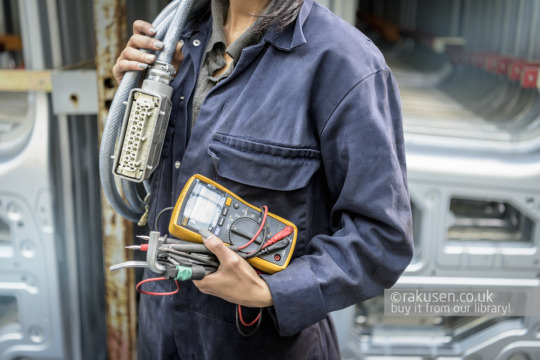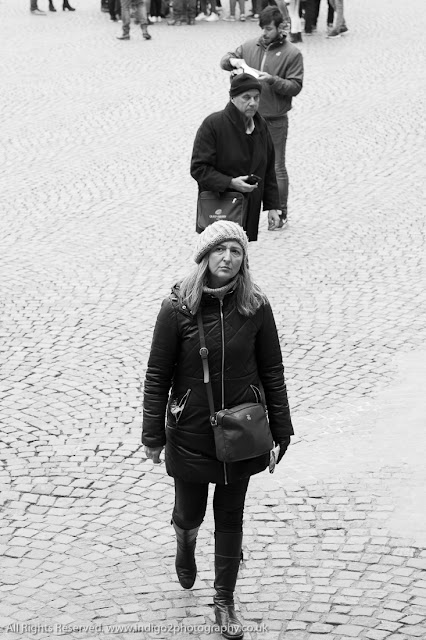Photographers

Carlos Lopes Franco: real life storytelling street photography
1x Blog-PhotographersCarlos Lopes Franco, one of the most prominent contemporary Portuguese photographers is a magnificent storyteller. He captures real life through his strong street and portrait work.
He claims that photography is an act of intimacy between the photographer and the photographed. His motto is perfectly well expressed by a famous quote of Bertold Brecht:
“All the arts contribute to the art greater than all: Life”
Carlos, can you please tell us something about the man behind the camera?
I have graduated in thermodynamic engineering and most of my life I was a scientific researcher in the area of energy. However, in photography pleasure and emotions dominate. So, the man behind the camera is the man who lives the dichotomy between the rational and the emotional in real life.
As a short resume, how did you arrive at photography? What attracted you to photography and when/why did you decide that shooting people would be “your calling” in photography?
Photography came into my life in 1981 on the occasion of a photographic contest, a joke, among colleagues. But in reality, only much later, between 2002 and 2006, with the appearance of digital photography, I began to take an interest in this area, which became an integral part of my life.
Photographing people is not only the photographing itself, but even more important the relationship that you create with someone, the approach, knowing their story when there is opportunity for a conversation. And sometimes friendship arises from those conversations.
How would you define your photographic view or approach?
I consider myself a photographer of the feeling, impulse and momentum. I want to give my photos, my vision and interpretation of urban or rural social life in its changing and complex aspect.
It is the affection that determines the direction, made of compulsive glances, in a style of photography that is sculpted by a rational interpretation.
About the people and locations in your pictures: How do you choose your locations and the people to shoot? Do you plan everything with those people or is it a random process?
I never plan anything, I'm not looking for something ... I do not aim to obtain photos resulting from situations studied or combined which would not make sense to me because I take photos on the way. In reality, for example in the case of "street photography", photographs are taken during occasions of a moment, in a relation that is created while passing by. In the pictures of the rural area, I only define the place where I want to go, and then the moment appears.
What role in your photographic approach, did your own experiences have throughout life?
I gain a vision of the various realities that exist, sometimes sad ones, sometimes those of happiness. There are also situations that enrich me as a human being, through the life stories I get to know when I approach and photograph people, because I love talking to people. I get to know the various cultures and habits of the people of the lands, who can live happily with so little, and that makes me appreciate the things that really matter.
What are your photographic vision and criteria – what do you search for to do your photos? What characteristics in people attract you as a photographer? City people, country / mountain people? Or is your interest universal for all?
As I mentioned, I do not look for anything specific, I like to go and be surprised. I am interested in the reality, the friendship and the sympathy of people. I love to photograph older people, but also children, in the villages and in the city as well. I'm not drawn to doing landscape photography, but who knows …
Do you see a particular “trend” in your photography?
My "themes" are reduced to rural and street photographs. These are the ones that interest me the most, and which have more meaning to me, for the charm of registering and making known the daily lives of people.
What is more important to you, the technical skills or the story / mood in the image?
The story, no doubt. The story is what you can see in the images, It is the story that sends us into a special situation.
What is your relationship with the people you photograph? Is it an enduring one or does it begin and end with the picture taken?
For me, photographing people is a satisfaction and my main objective, because I usually approach them, is to establish a direct, sincere and natural connection, which leads me to know a little of their lives, and from there, photography makes even more sense. Usually it is someone who, at first glance, catches my attention, either by their visual aspect or by the action they are having at that moment. I believe that any type of photography is not just shooting, to the contrary, it should always tell some kind of story, which will hardly happen with a mere shot.
As a friend of mine wrote in the preface of my last book "Olhar na alma | Into the soul": "The photographer has an obsession for people and it is not by chance that he likes to return later to the place where the perfect photograph was taken.
He thanks and pays back the portrayed people offering them paper prints for their gift of letting themselves be exposed in perpetual movements".
What gear do you use to shoot?
I have a camera and a 24-70mm zoom lens, which I practically only use in the 24mm setting, because it is the essential distance for the photographs that I take, namely for portraits and scenes with people.
Do you want to leave any advices to a beginner that wants to photograph people?
I do not have much advice to give, but for me the most important thing when I photograph people is the approach that is created. I like to get close and talk to whoever is in front of me.
Can you tell us who are your favourite photographers, and how they influenced your pictures and the way you shoot?
The main ones are the classic photographers (Cartier-Bresson, Robert Doisneau, Robert Capa, Ansel Adams, Dorothea Lange, Vivian Maier, André Kertesz, Alfred Eisenstaedt) and some of the current ones such as Sebastião Salgado, James Nachtwey, and also Portuguese like Eduardo Gageiro, Artur Pastor, Alfredo Cunha, and obviously there are others.
But I also like amateur photographers, who are not so well known and who I consider very good.
I think the photographs of these authors have meaning, importance, history, and that somehow influences me in the way I photograph, without ever copying anyone's work, because these authors are very different between them- I do not take ideas, I appreciate the work of each one. What happens sometimes is that some of the photographs I take influence me in other ones of my pictures.
And, from your shots, what is your favourite picture (only one)? Or do you think it is impossible for you to choose? And if yes, can you please tell us why this is your favourite picture?
I cannot mention just one, I have many which I like, in specific areas, such as "street photography" and “Rural”, where people are the dominant theme, either at portrait level or people's lives.
Is there any specific future project that you want to tell us about?
I have nothing defined. I just released my 3rd book, and just like the others these are projects that are coming up, which are not much planned. For example, my second book, "5 Days in Paris," came from a trip I made to France, from which I obtained photographs that I thought I could create a book from.
I recently made an extraordinary trip to Morocco, maybe I will do something about that ...
The past projects: you have already three published books. Can you tell us a little about each one of those books?
Briefly, I would say that my first book with the title "Nós, os outros| We, the others ", contains some of the contrasts that surround us, which are part of our daily life and that can be observed, analysed and recorded from a different and personal perspective, while still retaining its intrinsic essence and reality. Several photographs of this book show the daily lives of people, cultures, heritage, living, habits and customs, beliefs, urban or rural atmospheres, highlighting the human dimension.
The second book "5 dias em Paris", is the result of a relaxed trip, the journey through emblematic places - Montmartre, Opéra, Trocadero, Notre-Dame, Hotel de Ville, Champs Élysées, Père Lachaise, among others. The desire to publish the book did arise from the taste for the photographs obtained. It came from the pleasure when perceiving in the photographs human sensibility and visual impact.
The third and most recent book, "Olhar na alma | Into the Soul," is a journey through the culture of the inner country, the ancient faces during endless days.
This work stems from the immense joy I have in photographing people, talking to them and knowing the cultures and traditions of the various places in Portugal.
It is a work that portrays the rural nature of Portugal, the people of the land, the complicit gaze I create with whomever I cross path. It is the picture of the culture of the interior, of habits, beliefs and faith, of what still exists but we often do not even remember. From a Portugal far from the bustle of the city and modern times.
For me, those are the best shots I have taken. It's one of the three books that I bottled, the one that felt more challenging and at the same time more enjoyable to edit. For me it's my best book.
Can you tell us about the role and relevance 1X has for you as a photographer?
1X is of great importance to me, because it takes me to some countries and places that I have not visited yet, through the eyes of several photographers that I appreciate, giving me the chance to get to know different people, such as children and elderly. Showing these photographs in black and white works and allows me to get to know very different approaches to photography, it also allows me to evolve as a photographer.
. '

















































